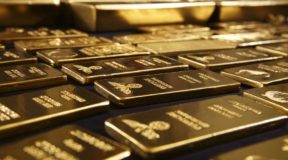Are you looking to invest in precious metals in London, but don’t know where to start? If so, you’ve come to the right place! In this article, we’ll provide an expert’s guide to navigating precious metal investment in London. We’ll cover a range of topics, from an overview of precious metals to the fees and costs associated, to buy and sell gold bullion by post. Read on to become an informed investor and make the most of your investments!

Overview of Precious Metals
When it comes to investing, precious metals are some of the most sought-after commodities on the market. From gold to silver and platinum to palladium, numerous opportunities exist for investors to capitalize on the value of these metals. In London, investors have an abundance of choices that range from stocks and tangible bars & coins to commodity futures and ETFs.
As a general overview, precious metals are finite resources that are mined from the earth. They have been used as currencies and bartering tools for centuries, and today they are primarily valued for their industrial and decorative uses. They are also sought after for their potential to act as a hedge against inflation and a buffer against economic downturns.
Gold is perhaps the most popular and sought-after of all the metals. The yellow metal is seen as a safe-haven for many investors and is considered one of the most stable investments to make. Past performance and current market trends suggest that gold is a reliable store of value and a great hedge against inflation. Gold ETFs, such as the London Gold Exchange (LGE), are one of the most popular ways to invest in gold and have become increasingly popular with investors looking to diversify their portfolios.
Silver is another popular investment and provides many of the same benefits as gold. Due to its lower cost, silver is often seen as a more accessible option for those looking to start investing in precious metals. ETFs such as the London Silver Exchange (LSE) offer investors the opportunity to diversify their portfolios and capitalize on silver’s potential for capital appreciation.
Platinum and palladium are two other precious metals popular with investors. Platinum is a rare and valuable metal and is used extensively in industrial applications. Palladium has gained in popularity due to increasing demand for its use in catalytic converters for automobiles. Both are attractive investments for those looking for potential capital appreciation as well as a hedge against inflation.
Finally, investors also have the option of buying physical bars and coins of these precious metals. These tangible investments can provide investors with a greater sense of security and ownership than ETFs or stocks.
Fees and Costs
For those looking to invest in precious metals in London, knowing the fees and costs associated can be key in helping with portfolio decisions. Before jumping into investing, one should be aware of the fees and costs associated with investing in precious metals.
In London, the most common fees associated with precious metal investments include storage fees, broker fees, and commission fees. Storage fees can come in two forms: safety deposit box fees or vault storage fees. It is important to understand the differences between the two. Safety deposit box fees are for small investors and for those who prefer to keep their investments off-site. Vault storage fees are for larger investments and those willing to invest in more costly storage systems.
Broker fees can vary depending on the broker chosen. Generally, broker fees are a percentage of the transaction. It is important to research brokers and choose carefully as broker fees can quickly add up over time.
Commission fees are charged to the investor upon the sale of their precious metal investments. The commission is taken out of the proceeds of the sale, so investors should keep this in mind when running their numbers and evaluating the performance of their investments.
In addition to the above mentioned fees, investors should also be aware of potential taxes and tariffs. Taxes may be applied to your profits or capital gains and the type of tax will depend on the size and nature of the investment. Tariffs can also be applied to imported precious metals, so investors should look into the specific tax laws and tariffs before beginning to invest.
Finally, investors should consider the cost of insurance when investing in precious metals. Insurance can protect investments from theft or other losses. Depending on the nature of the investment, insurance can vary in cost, so research should be conducted to determine the best coverage at the best price.
Investing in precious metals in London can be an exciting and rewarding endeavor. However, understanding the fees and costs associated can help ensure a successful investment. Knowing the fees for storage, broker, and commission, as well as potential taxes and tariffs, can give investors the information they need to make informed decisions about their precious metal investments.
Coins and Bullion
When it comes to investing in precious metals, coins and bullion are two of the most popular methods that London investors choose. This guide is created to provide a comprehensive overview of both coins and bullion investment in London, the associated benefits and drawbacks, and what you need to consider when deciding which option is right for you.
COINS
Coins are a type of precious metal investment that is often associated with numismatics, which is the study and collection of coins and currency. Coins are typically made from gold, silver, platinum, or palladium, and may be minted by a country or by private mints.
Investing in coins offers a number of benefits, including the potential for a higher return on investment due to their rarity, as well as their potential for capital appreciation over time. Coins may also be collectible, which can add to the value. The downside of investing in coins is that the market can be volatile, and prices may be affected by changes in the market. Additionally, coins can be costly to purchase, and buyers may face additional costs associated with storage and transportation.
Finally, it’s important to note that coins may be subject to taxes, so investors should be aware of any applicable rules and regulations before investing.
BULLION
Bullion is another type of precious metal investment that is popular among London investors. Bullion is typically made of gold or silver, and is typically sold in bars or coins.
One of the main benefits of investing in bullion is the potential for wealth preservation. Bullion tends to retain its value over time, and can also be used to diversify a portfolio. Additionally, if investors purchase coins or bars of bullion, they’ll have a tangible asset that they can easily store in a safe location. Finally, bullion is less volatile than coins, and may be easier to liquidate.
The downside of investing in bullion is that it can be expensive. Additionally, like coins, investors may face additional costs associated with storage and transportation. Furthermore, bullion is also subject to taxes, so investors should be aware of any applicable rules and regulations before investing.






